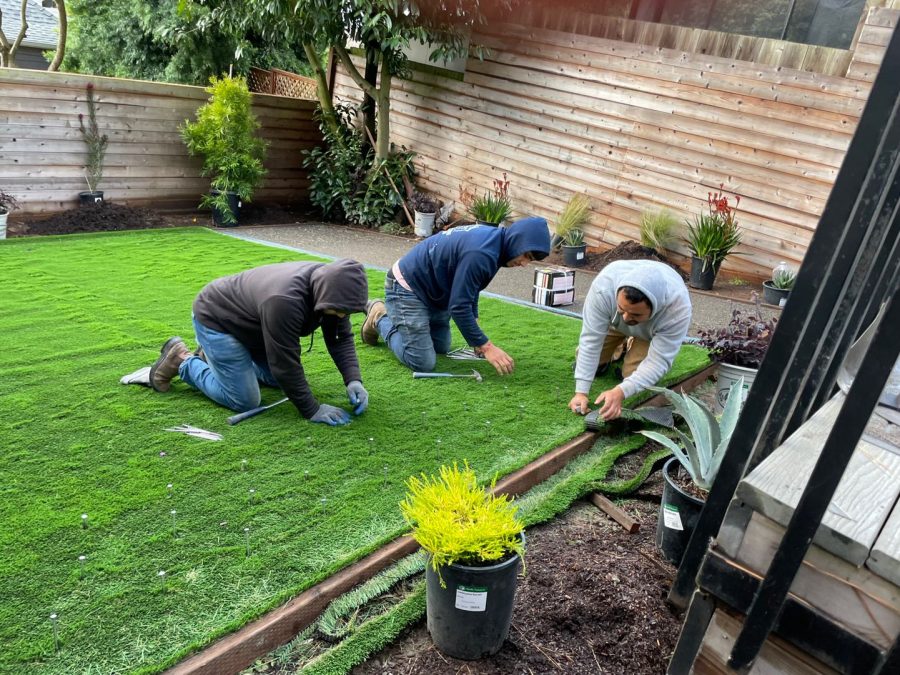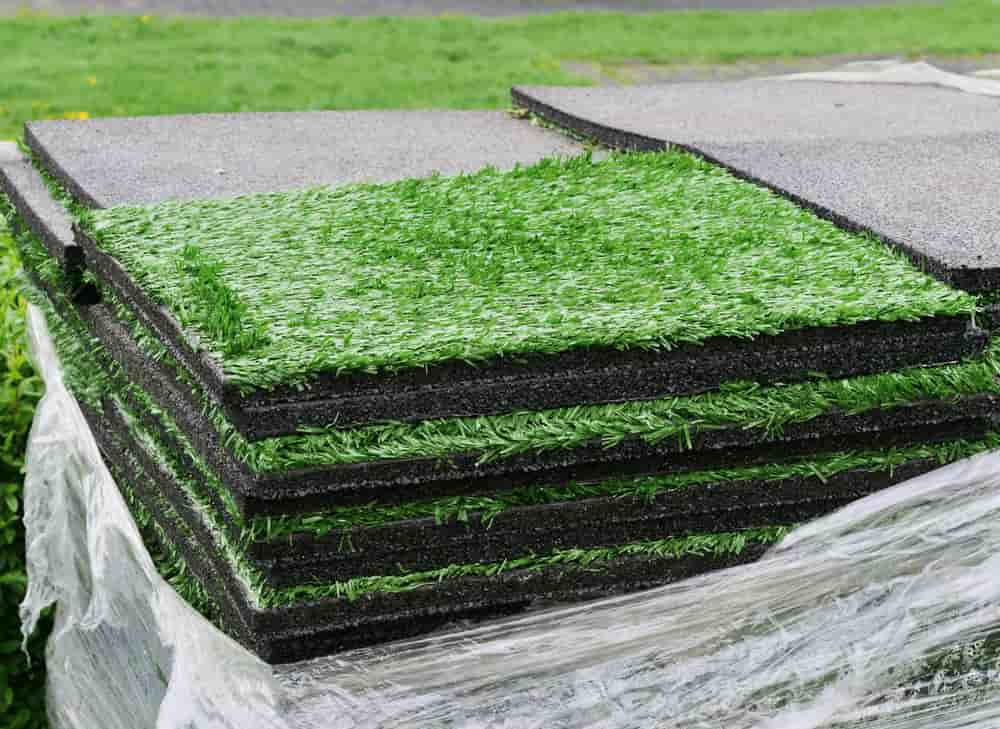Choose Reputable Artificial Turf Companies Phoenix for Durable and Natural-Looking Grass
Choose Reputable Artificial Turf Companies Phoenix for Durable and Natural-Looking Grass
Blog Article
Delve Into the Environmental Benefits of Opting for Artificial Grass Solutions
The fostering of fabricated lawn solutions offers an engaging possibility to attend to pushing ecological obstacles. By dramatically decreasing water usage and reducing the application of unsafe chemicals, these options not just promote sustainable landscaping however likewise safeguard local ecosystems. Additionally, the lower carbon footprint connected with decreased maintenance tasks adds to an extra sustainable approach to land monitoring. The ramifications of these advantages extend beyond mere conservation initiatives, increasing questions regarding their long-lasting impact on environment preservation and total environmental balance. Exploring these measurements reveals a complex interplay worth taking into consideration.
Water Preservation Advantages
One of the most significant advantages of synthetic grass is its ability to conserve water. In contrast, artificial lawn does not require watering, dramatically lowering the total need for water resources.
By removing the requirement for regular watering, synthetic grass adds to sustainable landscape techniques and assists mitigate the environmental impact of extreme water intake. Additionally, the conservation of water reaches the reduction of overflow, which can result in dirt erosion and waterway air pollution.
Furthermore, the installation of synthetic grass enables districts and house owners to designate water sources a lot more effectively, concentrating on crucial usages such as alcohol consumption water and agriculture. The shift in the direction of synthetic grass not just advertises responsible water usage however additionally straightens with more comprehensive environmental goals targeted at preserving all-natural resources.
As communities progressively prioritize sustainability, the water conservation benefits of synthetic grass provide a compelling instance for its fostering in household and commercial landscape design tasks.
Lowered Chemical Usage
The change to synthetic grass considerably reduces the reliance on chemical treatments generally utilized in all-natural turf maintenance. Traditional grass monitoring typically entails the application of herbicides, plant foods, and pesticides to promote development and control pests. These chemicals can present dangers to human health and wellness, local wild animals, and the atmosphere, contributing to dirt and water contamination.
On the other hand, man-made grass gets rid of the need for these dangerous compounds. As soon as set up, it calls for marginal upkeep, mostly consisting of routine cleansing and seldom infill replenishment. This reduction in chemical usage not only profits the immediate setting but additionally adds to more comprehensive ecological security. By minimizing the launch of artificial compounds right into the environment, synthetic grass advertises much healthier soil and water supply.
Furthermore, the absence of chemical overflow linked with synthetic grass installations helps protect neighborhood rivers from air pollution, sustaining aquatic life and preserving biodiversity. Artificial turf companies phoenix. As neighborhoods significantly focus on lasting techniques, choosing fabricated turf provides a practical service that lines up with environmental preservation goals. With this shift, homeowner can take pleasure in lavish green rooms without compromising environmental wellness, leading the means for a much more sustainable future
Reduced Carbon Footprint

Moreover, the installment of synthetic grass can lead to substantial water preservation. Natural grass need significant quantities of water for irrigation, which not just contributes to the carbon impact related to water removal and treatment yet also strains regional water sources. On the other hand, man-made turf requires marginal upkeep, requiring no watering, consequently dramatically reducing water usage and its connected power costs.
Furthermore, the longevity of synthetic grass adds to its decreased carbon effect. With a life-span of as much as 15 years or even more, the requirement for constant substitutes is diminished, leading to less waste and lower energy usage in production and disposing of conventional turf options. In general, man-made turf presents a lasting choice for ecologically mindful landscaping.
Environment Conservation
Environment preservation is a crucial factor to consider in the discussion over landscaping options, specifically when comparing man-made grass to natural grass. All-natural yard yards often call for substantial upkeep, consisting of using herbicides, fertilizers, and chemicals, which can detrimentally influence neighborhood ecosystems. These chemicals can seep into the dirt and rivers, harming native flora and fauna and interfering with regional environments.
On the other hand, man-made turf offers a chance to reduce the eco-friendly footprint of landscape design. you could try here By going with synthetic turf, homeowners can decrease the disruption of all-natural environments connected with traditional yard care methods. Synthetic lawn removes the need for hazardous chemicals, thereby securing neighboring wildlife and keeping the honesty of bordering ecological communities. Furthermore, the setup of synthetic lawn can result in the conversion of previous turf areas right into even more biodiverse landscapes, such as pollinator gardens or indigenous plant locations, which can support neighborhood wild animals.
Inevitably, the shift to synthetic grass not only conserves water and decreases maintenance efforts but likewise fosters a more harmonious relationship between human activities and the native environment, promoting habitat preservation in the process.
Long-Term Sustainability
Long-term sustainability is an essential element in evaluating the advantages of synthetic grass over traditional grass yards. One of the most significant advantages of synthetic grass is its longevity; it can last approximately 15-20 years with very little maintenance, whereas all-natural yard calls for constant reseeding and replacement. This long life minimizes the requirement for constant resources, such as water, plant foods, and chemicals, which are essential for keeping a healthy grass yard.
Furthermore, synthetic grass adds to a decrease in carbon discharges related to grass care devices. Standard lawns often call for gas-powered mowers, trimmers, and blowers, every one of which add to air contamination. Arizona turf. On the other hand, fabricated grass removes the need for such devices, advertising a cleaner setting
Moreover, the manufacturing of artificial grass progressively utilizes recycled materials, enhancing its sustainability profile. As suppliers take on environment-friendly practices, the environmental impact of artificial turf continues to decrease.

Conclusion
The adoption of synthetic grass remedies offers substantial environmental advantages, including substantial water preservation, reduced reliance on dangerous chemicals, and a reduced carbon impact. Fabricated lawn aids in protecting natural habitats by minimizing land disruption and promoting long-lasting sustainability through the usage of sturdy products. Jointly, these factors underscore the possibility find more of synthetic grass to add favorably to ecological health and offer a feasible choice to typical landscape design practices in an increasingly resource-conscious globe.
In comparison, synthetic lawn does not require watering, substantially lowering the total demand for water sources. By decreasing the release of synthetic compounds right into the environment, synthetic lawn promotes much healthier soil and water systems.
In have a peek at this website addition, the installation of man-made lawn can result in substantial water conservation. In comparison, synthetic lawn requires minimal upkeep, requiring no watering, consequently considerably lowering water use and its associated power costs.

Report this page